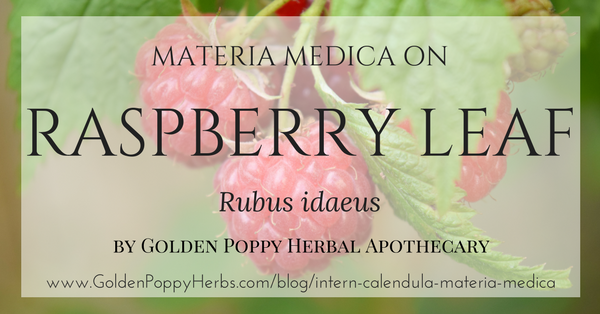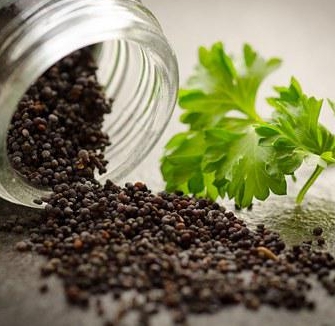
Used for centuries by women, particularly before, during, and after pregnancy, raspberry leaf is one of the most well-known herbs for women, and one of the most commonly used herbs for women’s health. Raspberry leaf is also high in minerals, which means it is particularly nourishing for the entire system and has wide-ranging effects far beyond fertility.
Raspberry leaf contains a substance known as fragarine which tones the uterus, it is also said to nourish the muscles and help prevent hemorrhage due to its high iron content and astringent qualities. This is particularly helpful in strengthening the uterine muscles in order to make labor shorter and easier. It is also helpful in reducing potential hemorrhaging during and after the birth.
The toning action also helps to reduce miscarriages in women with a prior history.
Post-birth, drinking raspberry leaf tea can help the uterus regain tone quicker, making for a faster recovery, as well as being nourishing to both the mother and the new child. Nourishment is particularly important in reducing potential post-partum depression in women, as this is most commonly caused by nutrient deficiencies.
Because it is so high in minerals, it is nourishing to the entire system and has benefits beyond fertility and pregnancy. It can help to relieve painful menstruation, balance the hormones, reduce excessive menstruation, and more. Its high iron content can be helpful for women who are prone to anemia.
So while historically, this herb is used by women who are pregnant, or wanting to get pregnant, it is also a highly nourishing herb that is wonderful for women of all ages and child-bearing inclinations.
It’s not just for women either, all people regardless of their sex can benefit from the high nutrient content of raspberry leaf tea. Male fertility is just as crucial when considering the over-all fertility picture, and the healthier the parents, the healthier the baby.
It is a drying herb however, so it is important to mix it with other herbs to counteract this effect if you are intending to take it for long periods of time. This especially applies to women post-menopause or people who tend to have a drier constitution to begin with.

MATERIA MEDICA: RASPBERRY LEAF
Latin Name: Rubus idaeus
Common Names: Red Raspberry
Parts Used: Leaf
Botanical Description:
Constituents: Flavonoids, tannins, volatile oils, pectin, vitamins, minerals, elagic acid
Preparation & Dosing:
- Tea 1oz in 1 quart of water, up to two cups a day
- Tincture: 2-4 mL 1:5 tincture taken three times per day.*
- *Dosage information from Medical Herbalism by David Hoffman
Energetics: cool, dry
Parts Affected: Female reproductive area, uterus
Actions:
- uterine tonic
- galactagogue
- nutritive
- astringent
Primary Uses:
- Considered the premier uterine tonic
- Excellent for dysfunctional uterine bleeding, reduces clotting
- Will normalize the cycle and uterine contractions during menses
- Strengthens the myometrium
- Is a mineral concentrator, especially Mg and Ca which is very supportive for the menstrual cycle
- Helps to decrease PMS symptoms
Cautions: this herb is drying and can be excessively so if taken over a long period of time by itself, so it is recommended to mix this herb with others to balance out these effects
Nourishing Tea – from Aviva Romm, MD
- 2 parts Raspberry leaf
- 2 parts Nettle
- 1 part Oat straw
- 1/2 part Alfalfa
- 1/2 part rose hips
- 1/4 part Red Clover
- 1/4 part Spearmint
-Mix all herbs together and store in an airtight container.
-Place a heaping 1/4 cup in a quart sized jar, cover with boiling water to fill the jar, and let steep from 30min-2hours.
-Strain and enjoy either at room temperature or re-heat
Also, let’s not forget about the raspberries themselves…
High in anti-oxidants, vitamin C, bio-flavonoids, and more, raspberries are an excellent addition to everyone’s diet (and they make a tasty tea addition too!)
Anti-oxidants in your foods help protect against free-radical damage from things like pollution, stress, poor diet, and the sun. This damage is part of what makes us age faster, get sick, and can lead to cancer, so making sure it doesn’t happen is crucial for health.
Addressing your stress levels and creating a healthy diet for your self is most certainly the hardest aspect to this puzzle; and while pollution is hard to avoid, drinking clean water is a good start. The easiest part to change is to avoid sun damage on your skin by using a good quality, natural sun-block.
Browse by category
- Aromatherapy
- Astrology & Magic
- Ayurdeva
- Botany Foraging & Gardening
- Chakras
- Digestion
- Earth Connection
- Energetics
- Flower & Gem Essences
- Folk Traditions
- Herbalism & Holistic Health
- Immune Support
- Materia Medica
- Mushrooms
- Nutrition
- Seasonal Living: Autumn
- Seasonal Living: Moon
- Seasonal Living: Spring
- Seasonal Living: Summer
- Seasonal Living: Winter
- Skin & Body Care

Don’t Miss a Thing!
Enter your email below to be the first to know about sales, new products and tips for taking care of your pieces.

